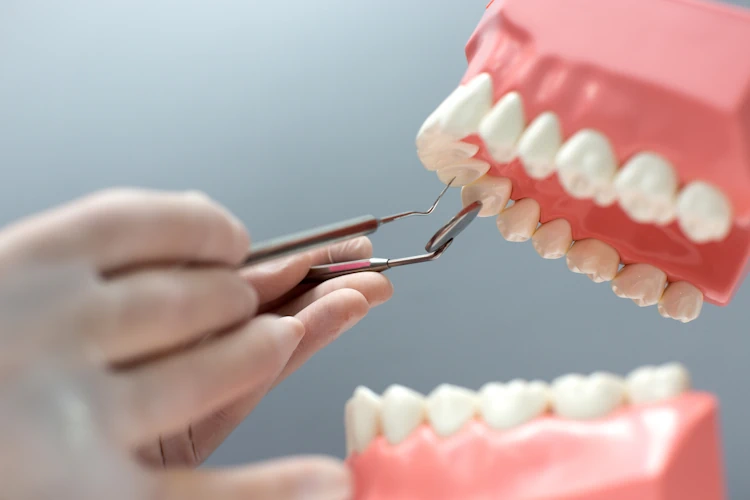Your smile is a valuable asset, and maintaining the health and appearance of your teeth is crucial for both oral function and aesthetics. Dental crowns are versatile restorative tools that can play a vital role in preserving and enhancing your smile. In this article, we will explore when dental crowns paddington are necessary and how they can help restore your smile to its full glory.
Understanding Dental Crowns
What Are Dental Crowns?
Dental crowns brisbane, often referred to as “caps,” are custom-made covers placed over a damaged or weakened tooth. They serve to protect and strengthen the tooth while improving its appearance and functionality.
How Do They Work?
Dentist red hill can do:
- Tooth Preparation: Before placing a dental crown, the affected tooth is prepared by removing any decay or damage. This ensures a proper fit for the crown.
- Impression: An impression of the prepared tooth is taken to create a custom-made crown that matches your natural teeth.
- Placement: The crown is cemented onto the tooth, covering it entirely.
Situations Requiring Dental Crowns
When Are Dental Crowns Necessary?
Dental crowns may be recommended in various situations, including:
Tooth Decay
When a tooth has extensive decay that cannot be effectively restored with a filling, a crown provides the necessary protection and support.
Fractured or Broken Teeth
Teeth that are cracked, fractured, or broken due to injury or trauma often require crowns to prevent further damage.
Weakened Teeth
Teeth that have been weakened by large fillings or root canal treatments benefit from crowns to prevent potential fractures.
Cosmetic Enhancements
Crowns can improve the appearance of discolored, misshapen, or severely stained teeth, helping you achieve a more attractive smile.
Tooth Protection
Following a root canal procedure, a crown is typically placed to protect the treated tooth from further damage.
Dental Bridges
Crowns are used to anchor dental bridges, which replace missing teeth and restore oral function.

Types of Dental Crowns
Exploring Your Options
There are various types of dental crowns to choose from, including:
Porcelain Crowns
Porcelain crowns closely resemble natural teeth in both color and translucency, making them an excellent choice for visible front teeth.
Metal Crowns
Metal crowns, often made of alloys like gold or silver, are exceptionally durable and are typically used for back teeth.
Porcelain-fused-to-Metal (PFM) Crowns
PFM crowns combine the strength of metal with the natural appearance of porcelain, making them suitable for both front and back teeth.
Advantages of Dental Crowns
The Benefits of Restoration
Dental crowns offer numerous advantages, such as:
Enhanced Strength
Crowns provide exceptional strength and protection to a weakened or damaged tooth.
Aesthetic Improvement
They can significantly improve the appearance of a tooth, ensuring it blends seamlessly with your natural smile.
Longevity
With proper care, dental crowns can last for many years, providing a long-term solution.
Conclusion
In conclusion, dental crowns are invaluable tools in restorative dentistry, serving to preserve, protect, and enhance your smile. Whether you’re dealing with tooth decay, fractures, or seeking cosmetic improvements, dental crowns can address a wide range of dental concerns. Consult with your dentist to determine if a dental crown is necessary for restoring and maintaining your radiant smile.
Remember, your smile is a reflection of your overall health and confidence, and dental crowns can play a pivotal role in ensuring it remains vibrant and functional for years to come.